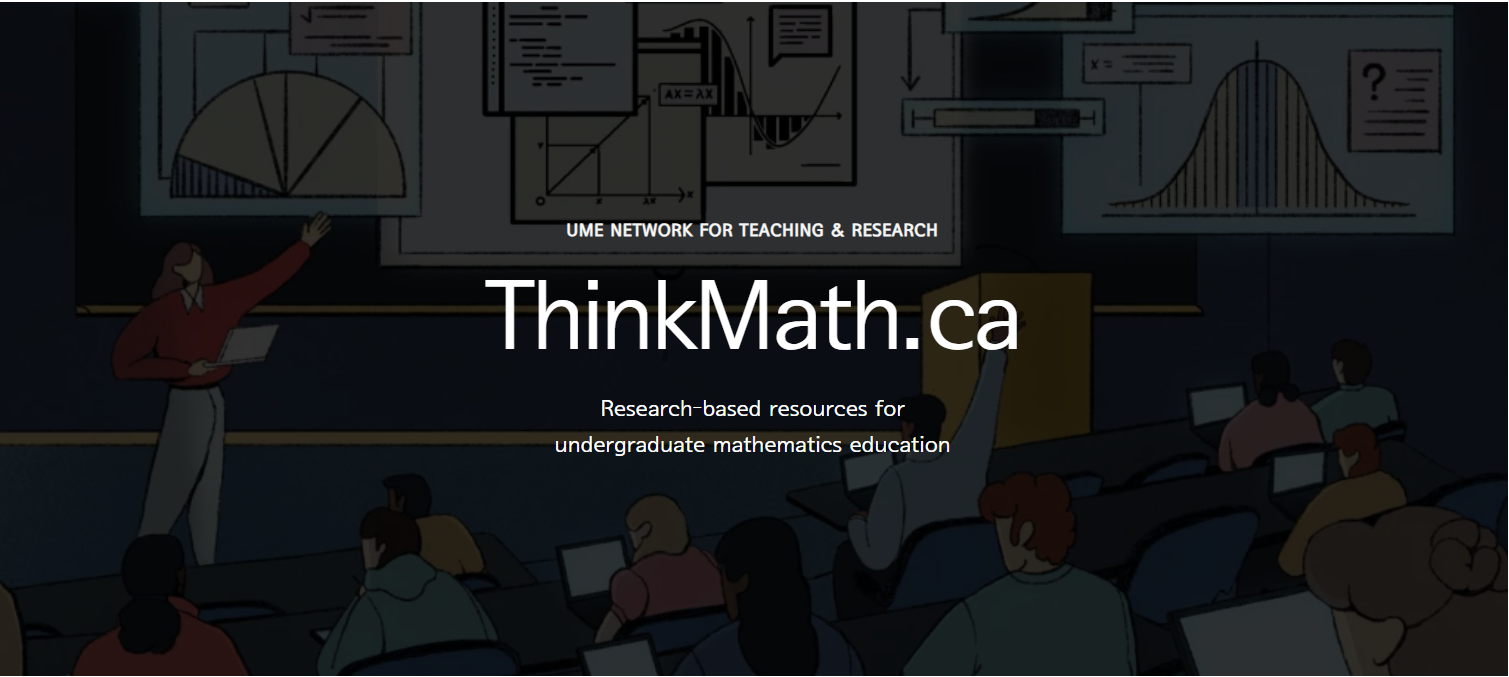|
Associate Professor, Faculty of Education
Ontario Tech University 61 Charles St. Oshawa, Ontario L1H 4X8 ami.mamolo@ontariotechu.ca Faculty Profile ResearchGate Profile |
RESEARCH INTERESTS:
My research is in mathematics education. My work explores how to foster and elicit reasoning that can disrupt misguided and ingrained preconceptions about mathematics content, learning, and teaching. I'm especially interested in how creative and multi-modal approaches to math teaching and learning can be networked to encourage conceptual growth, meaningful engagement, and enjoyment with mathematics.
What's New?
Seminar: Mathematics and Mathematical Thinking for Society
Hosted by Institute for the Study of University Pedagogy, University of Toronto Mississauga, and the UME Network for Teaching & Research
Check out our website www.thinkmath.ca!
Seminar: Mathematics and Mathematical Thinking for Society
Hosted by Institute for the Study of University Pedagogy, University of Toronto Mississauga, and the UME Network for Teaching & Research
Check out our website www.thinkmath.ca!
New Research:
Rodney, S. & Mamolo, A. (2023). Relational-Curiosity and Mathematics: A Dynamic Exploration of DataViz. Canadian Journal for Science, Mathematics, and Technology Education. https://rdcu.be/dsg3Y
We examine two vignettes that discuss preservice teachers’ interaction with dynamic visual representations of data related to plastic pollution and food supply. We analyse this data with an eye toward the relationship between the affordances of the technology and the emergence of participants’ curiosity. We adopt the Embodied Curiosity theoretical lens to show how the foundational construct, relational-curiosity, provides opportunities for curiosity to be visible and recognized as a tool for meaning-making. This research provides insights into how preservice teachers can mitigate the challenges and tensions they face when navigating connections between mathematics and social justice issues.
We examine two vignettes that discuss preservice teachers’ interaction with dynamic visual representations of data related to plastic pollution and food supply. We analyse this data with an eye toward the relationship between the affordances of the technology and the emergence of participants’ curiosity. We adopt the Embodied Curiosity theoretical lens to show how the foundational construct, relational-curiosity, provides opportunities for curiosity to be visible and recognized as a tool for meaning-making. This research provides insights into how preservice teachers can mitigate the challenges and tensions they face when navigating connections between mathematics and social justice issues.
Mamolo, A. & Glynn-Adey, P. (2023). Tangible connections within the mathematical horizon: Exploring the Dihedral Calculator. ZDM - Mathematics Education, 55, 793-805. https://doi.org/10.1007/s11858-023-01503-5
How can tactile experiences with geometric models
in undergraduate mathematics provide for opportunities
to foster knowledge at the mathematical horizon?
in undergraduate mathematics provide for opportunities
to foster knowledge at the mathematical horizon?
We report on a group theory activity in which learners explored dihedral symmetries through a tangible geometric model. This approach has historical roots in the work of Felix Klein’s Erlangen Program and his Elementary Mathematics from an Advanced Standpoint. We situate our study with respect to this history as well as current educational research in spatial visual reasoning, abstract algebra, and teacher knowledge. Our findings highlight opportunities that tangible geometric models can provide for fostering structural and interconnected understanding characteristic of teachers’ knowledge at the mathematical horizon.
Read more about my research projects:
SERVICE & LEADERSHIP
Currently, I serve as:
- Co-chair of the Topic Study Group Teaching & Learning of Algebra at Secondary and Tertiary Levels, for the 15th International Congress on Mathematical Education, Sydney, Australia
- Editorial Board member of the Journal of Mathematical Behavior, and the Canadian Journal of Science, Mathematics and Technology Education
- Steering Committee Member of the Fields Institute Mathematics Education Forum
- Canadian representative on the Editorial Panel member of the Journal for Research in Mathematics Education
- Executive Committee member, recording secretary, and newsletter editor of the Canadian Mathematics Education Study Group / Groupe Canadien d"Etude en Didactique des Mathematiques
- Board of Directors member and recording secretary of For the Learning of Mathematics
- Member of the Program Committee for the Special Interest Group of the MAA, Research in Undergraduate Mathematics Education Conference
- Co-chair of the Fields Institute MathEd Forum Steering Committee
EDUCATION
- PhD in Mathematics Education (2009), Simon Fraser University
- MSc in Mathematics (2005), McMaster University
- BSc (Hons) in Mathematics (2003), McMaster University






